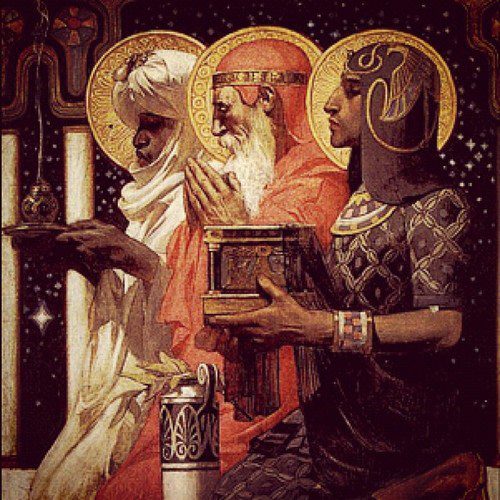As is my wont this morning I was noodling through the Wikipedia list of events for this day in history. Of course I also knew it was the Feast of the Epiphany (or, if you’re of an Eastern Christian inclination, the Theophany), so when I went to the”June 6″ page, I scrolled down the list to the subsection on holidays. Once there meaning to go to “Epiphany” I accidentally pushed the button for “Western Christianity.”
I found it interesting how the article started off with a section on “original sin.” Of course that should be true. Religions, for the most part, do seem to start with an observation of how something is wrong. They define that wrong and then offer a solution.
This certainly is true for the Christian tradition, or, at least, its normative forms. Now, you can play “original sin” a couple of ways. There’s the literal Adam and mostly Eve literally sinned, and we their biological descendants, we’ve been screwed ever since. It’s perennially popular. And tends to stand or fall with whether this is an actual historical event. Something I have to admit I don’t even find vaguely possible. Or, and what I’d consider a more useful route, is to see it as metaphorical for some great intuition about that “wrongness” so many people feel. No doubt there’s some interesting stuff in the received tradition to play with for those who go this route.
Me, I’m particularly interested in how the original sin is eating the fruit of the “knowledge of good and evil.” I find that “knowledge of good and evil” is a delightful description of our human ability to slice and dice, to see what is going on accurately enough to predict the future. Now, we know other animals can do this, as well. I recall when Jan & I lived in a cabin in the woods in northern California many, many years ago. Our cat would sit at a window and watch some critter walk by. As the beast walked out of sight our cat easily ran to another window in the right direction to continue her surveillance.
But, we humans do more than predict where game or danger might be. We have honed this skill set of observation and analysis to an astonishing degree and now can delve to the very secrets of the cosmos, which indeed, as the scriptures describe, makes us as “gods.” And I believe there is a profound problem that comes with this ability, that comes as naturally as a box and its lid. We take what is a world in motion, where there are no fixed things, but instead, moments created out of conditions, that as those conditions are in flux, immediately reset into some new moment, and so on for as long as there is time; but, and, this is the hard thing, we come to believe those moments are substantial.
These moments are the things of the world. Cats and dogs, mountains and seas, stars and galaxies, and, of course, you and me. We are, I believe, born precious into the universe. And with our birth comes our death. In a moment. What is wondrous is this “original blessing” of a great play that is the cosmos. The “original sin” is grasping after that which is passing as if it were permanent. The evil are the things we do to protect that illusion.
You can think of this as my Buddhist Christianity mashup.
Works for me.
And, then there’s today. The Epiphany, which means “manifestation” or, perhaps “striking appearance.” It’s also called the Theophany, which means “a vision of God.” Here in the West it is most commonly observed on the 6th of January. Although, of course, of course, it doesn’t have to.
Here we get the culmination of the nativity story. It’s the day the wise ones show up with their strange and in some ways terrible gifts.
Of the various Christian holidays I’ve always liked Christmas best. Easter, while it has all those powerful birth, death, renewal themes is at the same time for too many about escaping the bonds of the flesh. It becomes the worst of those stories we tell to pretend what is, isn’t. Christmas, just as rooted in more ancient things as Easter, is always about a birth of a human being. It is about hope and wonder in ordinary things, the most miraculous and ordinary thing of all for us: the birth of a child.
And so the festival of the Epiphany is about noticing this. It is the feast of showing up and witnessing what is. It is the celebration of what happens when we wake up to what is actually going on since the creation of the stars themselves.
For me in my Buddhist understanding of the Christian story the Epiphany is a celebration of what happens when we let go of our grasping and instead tumble into the way things are. Haunted by those gifts, of course. Birth and death are so close together that they are like the two sides of a single hand. That’s the way things are. Miracle. Ordinary. Life and death as one thing. All of history from the beginning to the end collapsed into this moment.
A moment of noticing, a moment of seeing that child as the very face of God.
Kind of wonderful.













